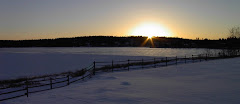I was in Munich in September 1991 on one of my regular business trips from England to Germany. I had decided to come back on the train instead of flying, I am not a typical business traveller, I prefer to stay with people I know and travel in interesting ways. I also would leave towards the end of the week and come back on a Sunday. This meant the company saved a bunch on money on the flight and I got some spare time in Germany.
The train I was taking was not leaving till sometime in the evening, I had a bunch of time to kill after the sun was down. I bought myself a novel and some magazines for the trip but I did not want to start on them till the train was under way. I wandered through the Hauptbahnhof and watched as the trains arrived and left. I was watching the people passing through the station. With 32 platforms, there was a constant flow of people through the station. It also had that distinct grand railway station feeling - a bit drafty and cold as well as dirtier than it needed to be. Still I have a fascination for trains and where people might be headed on the train.
One train I noticed was the Skojpe Express. The train was leaving at quarter to ten in the evening, about 45 minutes before mine.
The route of the train was from Munich to Salzburg to Villach and then into the former Yugoslavia. The end city, Skopje, is now the capital of Macedonia, which had recently declared independence. The train route, as per the board, was right through the biggest battle going on in the former Yugoslavia at the time - the battle of Vukovar. There was a hand written note saying the train would only go as far as Vinkovci, which is less than 20 kilometer from Vukovar.
In London I bought the Guardian most mornings on my way to work and each day they had a page on the war in the former Yugoslavia. Their coverage was exemplary which meant that I was very up to date with what was happening. It was at the start of the summer of 1991 that Yugoslavia starting falling apart with Croatia declaring independence on June 25th and Slovenia on June 26th. The Slovenian break had gone quickly and easily, the image that stands in my mind is of some youth around age 20 coming across an JNA troop mover and turning it in to the JNA. It was all so civilized, but then Slovenian was almost all Slovenes/ I remember thinking in August of that year that the Yugoslavian wars had taken fewer lives than the troubles in Northern Ireland but were getting a lot of ink. By the time I was in Munich in September that was clearly no longer the case.
The train bound for Croatia was filling with people carrying a lot of bags of clothes, bags of food and other things they were bringing from Germany. There was a grim look on the faces of the people entering the train. These were ethnic Croatians returning to Croatia in support of their new country.
Germany had allowed in guest workers from Yugoslavia in the late 1960s and they had done well. Many had remained for over 20 years but sent money back to Yugoslavia and often funded the building of a modern house in the town or village them came from. Since I have spent enough time in Germany, I have a good idea what a modern house in a small Bavarian village looks like - the villages in Croatia have the same houses. The images of the war in Croatia of the burned or bombed houses felt closer to me because it was a landscape I knew.
Many of the people boarding the train were men in their 20s and 30s. These men carried less stuff than the others but had the grimmest faces. All I could think of was a scene from the Spanish Civil War written by George Orwell, I think it I read in "An Age Like This" The collected Essays, Journalism and Letters of George Orwell Volume 1. He wrote of the train that he was on from Paris to the Spanish frontier and how as the train went further south more and more of the men on the train were clearly headed to the war and the train felt like a troop train.
The train was full, 21:43 came and the train left Munich to head towards the front in the war. It is the first and only time I have seen men going off to war. The image of the men stayed with me as the war continued on for four more years and well over 100,000 people died. I do not doubt that some of those men died.

No comments:
Post a Comment